To celebrate the diversity, innovation and influence of academic books over the course of modern history, seven specialists share the book they believe has been most influential on modern British culture and society, as part of Academic Book Week.
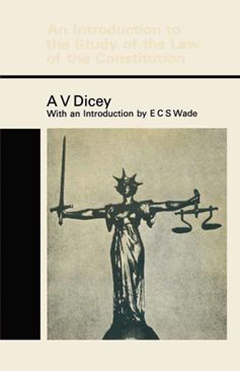
1. The Law of the Constitution, by A.V Dicey
Veronika Fikfak, lecturer and fellow in law, University of Cambridge
It is a measure of A.V.Dicey’s influence that more than 132 years after the first publication, the relevance of his writing is at the core of the UK’s departure from the European Union.
While students and scholars have read Dicey for more than a century as a basic constitutional text, the general public will have become familiar with his arguments on parliamentary sovereignty and the primacy of parliament only recently – with Gina Miller, the lead claimant in the legal fight to get parliament to vote on whether the UK can start the process of leaving the EU.
Dicey argued that the British parliament is an “absolutely sovereign legislature” and had the “right to make or unmake any law”. His legacy in the UK constitutional sphere is unrivalled, and to this day he is referred to as “the great constitutional lawyer”, whose writings have not only shaped the constitutional landscape of the UK until now but are also very likely to decide our future.
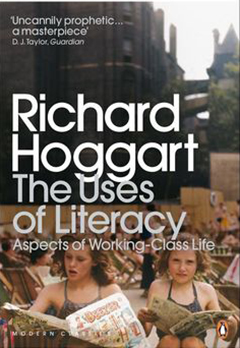
2. The Uses of Literacy: Aspects of Working-Class Life, by Richard Hoggart
Simon Frith, Tovey professor of music, University of Edinburgh
When it was first published in 1957, Richard Hoggart’s book made sense of the upheavals in post-war ways of life by referring back to working-class culture – and Hoggart’s own childhood – in pre-war Britain.
What is clear now though, is how important the book became for our understanding of what came next: consumer culture. The book was both a founding text for the academic fields of media and cultural studies, and an inspiration for a new generation of novelists, dramatists and film makers – not least for the team behind Coronation Street, launched in 1960.
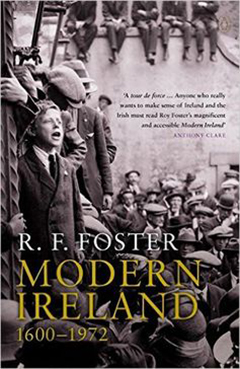
3. Modern Ireland 1600-1972, by Roy Foster
Richard English, professor of politics, Queen’s University Belfast
At a difficult point in Anglo-Irish politics, this book brought to a very wide audience the insights of the latest and most important academic scholarship on Ireland. And it considered “Irishness” in terms of a layered and inclusive sense of identities which was then less widely accepted than it has subsequently become.
As the Northern Irish Troubles began to be transformed into a much more benign peace process, and as relations between the Republic of Ireland and the UK continue to be shaped in ways that are significant for both islands, this book heralded a more inclusive and subtle interpretation of how properly to understand Ireland. Indirectly, it made it possible to know a fuller reality of British experience too.

4. The Invention of Tradition, by Eric Hobsbawm and Terence Ranger
Diarmaid MacCulloch, professor of the history of the church, University of Oxford
As the UK began to come to terms with its retreat from imperial narcissism, Eric Hobsbawm and Terence Ranger’s book was a dose of common sense. These essays edited in 1983 concentrate on the creation of the UK and its empire, and nationalist reactions against those developments. It is still just as relevant now as it was when it was published, posing many questions for the understanding of our history.
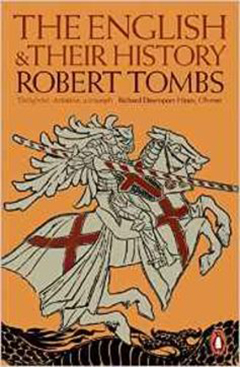
5. The English and their History, by Robert Tombs
Ian Kershaw, emeritus professor of modern history, University of Sheffield
As its title suggests, Robert Tombs’ magnificent book published in 2014 focuses on English, not British, history. However, England’s history was – long before the union with Scotland in 1707 – deeply entwined with that of Wales, Scotland and Ireland. Tombs’ book not only incorporates these interrelationships but is greatly enlightening about them. It is a book that cannot be ignored by anyone wishing to know more about the history of the isles.
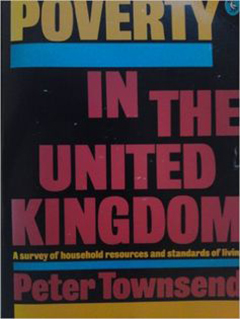
6. Poverty in the United Kingdom, by Peter Townsend
Ruth Lister, emeritus professor of social policy, Loughborough University
Published in 1979, this is a monumental work, which helped modern Britain better to understand itself. Not only did it provide the most comprehensive in-depth picture of what modern poverty means for those affected, it also represented a milestone in developing our understanding of poverty.
Its opening words provided a relative definition of poverty, rooted in a concept of relative deprivation, which still resonates nearly 40 years later and which has influenced subsequent research and policy. As predicted at the time, it ranks as the modern day successor to the classic works of Charles Booth and Seebohm Rowntree.

7. The General Theory of Employment, Interest and Money, by John Maynard Keynes
John Kay, supernumerary fellow in economics, University of Oxford
In a letter to George Bernard Shaw, Keynes wrote: “I believe myself to be writing a book on economic theory, which will largely revolutionise … the way the world thinks about economic problems.” The author’s assessment of its impact was correct. The analysis of the book was the dominant influence on macroeconomic policies in the 30 years that followed World War II, and we still debate, and employ, Keynesian policies today.
Author Bios: Diarmaid MacCulloch is Professor of the History of the Church at the University of Oxford,Ian Kershaw is Emeritus Professor of Modern History at the University of Sheffield, Richard English is a Professor of Politics at Queen’s University Belfast, Ruth Lister is Emeritus Professor of Social Policy at Loughborough University, Simon Frith is the Tovey Chair of Music at the University of Edinburgh and Veronika Fikfak is a Lecturer in Law at the University of Cambridge

